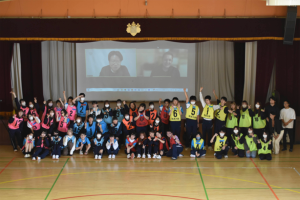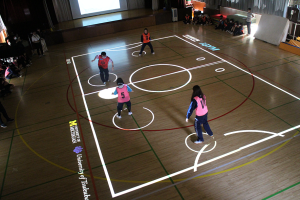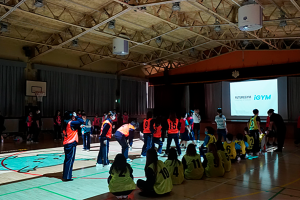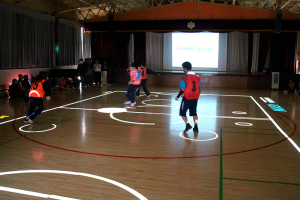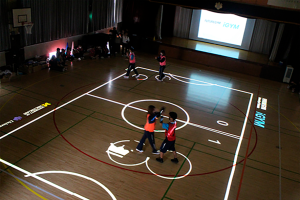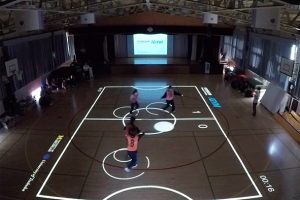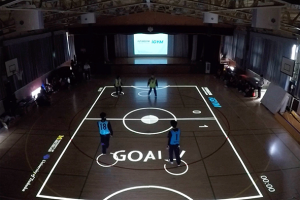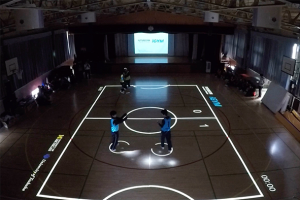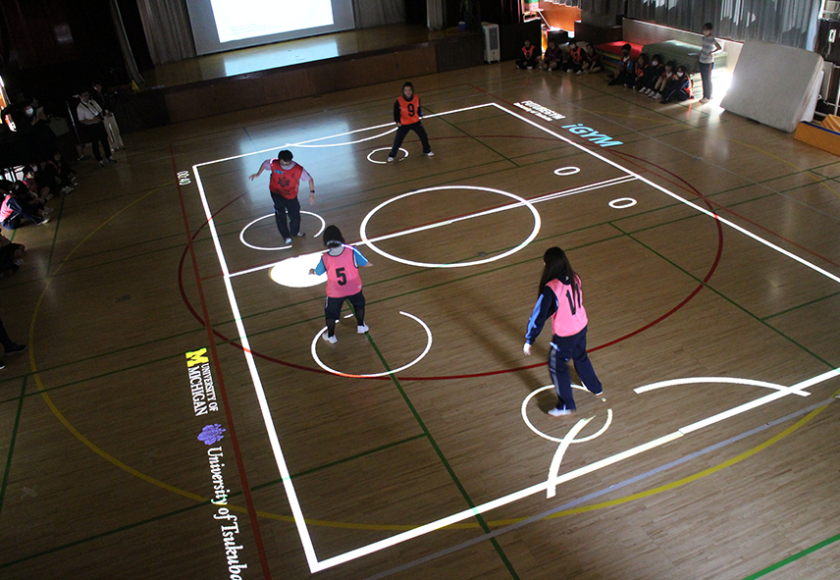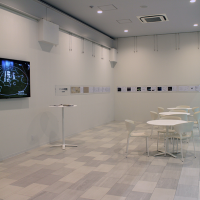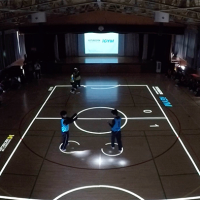The FUTUREGYM Team at the University of Tsukuba has been working on the development of a large-scale floor projection-based Augmented Reality (AR) system in the gymnasium of the Otsuka Special Needs School, which is affiliated with the University of Tsukuba (Construction began in 2014 and operations started in 2015). They have been providing support for educational activities aimed at children with neurodiverse abilities, including intellectual disabilities and autism spectrum disorders. With the goal of empowering both students and teachers, the system offers inclusive experiences and enhances the educational curriculum, fostering inclusivity and innovation in education.
Similarly, the iGYM Team at the University of Michigan has developed a projection-based Augmented Reality (AR) system that enables people with mobility disabilities (e.g., children using wheelchairs) to engage in play and exercise activities with their peers without disabilities.
To further the field of inclusive play and education, the two teams recently started an international collaboration, exploring, among others, the integration of each other’s game contents and interaction features into their respective systems.
On October 28th, the first result of their joint efforts was implemented at a social event with 21 students from the high school section of the Otsuka Special Needs School affiliated with the University of Tsukuba and 25 second-year students from the Sakado High School affiliated with the University of Tsukuba. For this event, iGYM’s air hockey game and circle interaction feature were integrated into the FUTUREGYM system; it was used in an ice-breaking play session where students were paired up in teams, each comprising one student from each school, to compete against each other. Dr. Mika Oki and Ryoichi Ishitobi facilitated the event on-site along with other members. Dr. Roland Graf from the University of Michigan and Dr. Kenji Suzuki participated via Zoom.
In the future, the two teams plan to develop further activities for social events and continue system integration to include people using wheelchairs and support inclusive physical activities. They also aim to continue charting future research agenda to explore and articulate possible paths for designing future augmented realities that promote equal opportunities.
This initiative was partially supported by the Japan Science and Technology Agency (JST) CREST “Social Imaging (No. JPMJCR14E2)” and “Social Signals (No. JPMJCR19A2)” project.
[Contributors]
FUTUREGYM Team at the University of Tsukuba:
– Dr. Mika Oki (Researcher, Institute of Systems and Information Engineering)
– Hayato Saiki (Degree Program in Empowerment Informatics, 2nd year Ph.D. student)
– Kenta Tanaka (Degree Program in Intelligent and Mechanical Interaction Systems, 1st year master’s student)
– Dr. Kenji Suzuki (Professor, Institute of Systems and Information Engineering)
iGYM Team at the University of Michigan:
Dr. Roland Graf (Associate Professor, Stamps School of Art & Design)
Dr. Michael Nebeling (Associate Professor, School of Information)
Dr. Hun Seok Kim (Associate Professor, College of Engineering)
Don Manfredi and Alisyn Malek (U-M Innovation Partnership)
Shyam Keshavmurthy and Seong-Hee Westlake (Consultants)
Ruifeng Xu (Engineering, 2nd Year) and the FEAST/AiRPLAY student team (interdisciplinary Faculty Engineering/Arts Student Team)
[Participants]
– High School Division of the Otsuka Special Needs School, University of Tsukuba: Ryoichi Ishitobi (Head of the High School Division), 7 other teachers, 21 high school students
– Sakado High School , University of Tsukuba: Yuki Kumakura (Teacher of the Welfare Department), 25 2nd-year high school students
[Acknowledgements]
– Tomohiro Sato (Senior Teacher, Otsuka Special Needs School)
– Hiroe Oomiya (Vice Principal, Otsuka Special Needs School)
- University of Tsukuba “New inclusive event utilizing University of Michigan’s augmented reality game was held at “FUTUREGYM””
- University of Michigan
